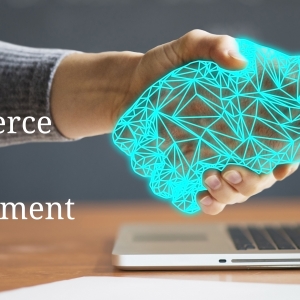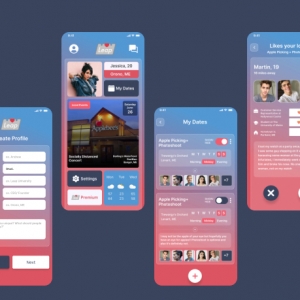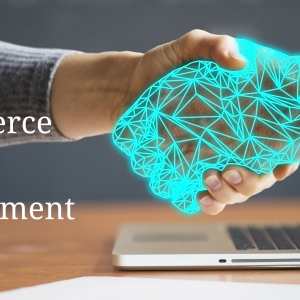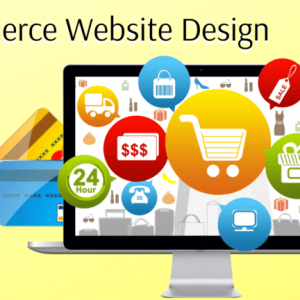Launching an e-commerce project requires a skilled and experienced development team. The success of your online venture greatly depends on the proficiency of the developers you choose. To ensure you find the best fit for your project, here's a comprehensive guide on how to find and hire the best e-commerce developers:
- Define Your Project Requirements:
Before embarking on the hiring process, clearly outline your project's scope, goals, and technical requirements. Identify the features and functionalities your e-commerce platform needs to have, such as payment gateways, inventory management, and security protocols. This foundational understanding will guide your search for developers with the right expertise.
- Choose the Right E-commerce Platform:
Determine the e-commerce platform that best aligns with your business needs. Popular platforms include Shopify, WooCommerce, Magento, and others. Developers often specialize in specific platforms, so choosing one that fits your project can help narrow down your search for the right professionals.
- Look for Relevant Experience:
E-commerce development is a specialized field, and experience matters. Look for developers with a proven track record in creating successful e-commerce websites. Check their portfolio to see if they have worked on projects similar to yours, examining the design, functionality, and user experience.
- Technical Proficiency:
Assess the technical skills of potential developers. They should be proficient in programming languages relevant to e-commerce development, such as PHP, JavaScript, and others. Knowledge of e-commerce frameworks (e.g., Laravel, Django) and familiarity with database management systems is also crucial.
- Consider Full-Stack or Specialized Developers:
Decide whether you need a full-stack developer capable of handling both frontend and backend development or specialized developers focusing on specific aspects like frontend design, backend development, or database management. The complexity of your project and your budget will influence this decision.
- Check Reviews and References:
Look for reviews and testimonials from previous clients to gauge the developers' reputation and reliability. Ask for references and contact past clients directly if possible. This firsthand information can provide insights into the developers' communication skills, work ethic, and the overall satisfaction of their clients.
- Evaluate Communication Skills:
Effective communication is essential for a successful development process. Ensure that the developers you choose can clearly understand your project requirements, provide regular updates, and respond promptly to queries. Miscommunication can lead to delays and misunderstandings that may impact the project's timeline and quality.
- Assess Problem-Solving Skills:
E-commerce development projects often encounter challenges and complexities. Assess the developers' problem-solving skills by discussing hypothetical scenarios or past challenges they've faced in their projects. Their ability to troubleshoot and find effective solutions is critical for overcoming obstacles during the development process.
- Remote vs. Local Developers:
Decide whether you want to hire local developers or consider a remote team. While local developers may offer easier communication and potential face-to-face meetings, remote developers can provide cost savings and access to a broader talent pool. Platforms like Upwork, Toptal, and GitHub can be valuable resources for finding remote developers.
- Determine Budget and Payment Structure:
Clearly define your budget constraints and explore different payment structures. Some developers prefer hourly rates, while others may work on a fixed-price basis. Consider the payment structure that aligns with your project's scope and timeline. Be transparent about your budget during negotiations to avoid misunderstandings later on.
- Conduct Technical Interviews:
Once you've shortlisted potential candidates, conduct technical interviews to assess their problem-solving skills and technical expertise. Prepare specific questions related to your project requirements and evaluate how well they can apply their knowledge to real-world scenarios.
- Test Their Coding Skills:
Consider implementing a coding test or a small project as part of the hiring process. This allows you to assess the developers' coding skills, adherence to best practices, and the quality of their work. It's an effective way to gauge their practical abilities before committing to a larger project.
- Evaluate Design and User Experience:
For e-commerce websites, user experience and design are crucial factors that directly impact customer satisfaction. Assess the developers' proficiency in creating user-friendly interfaces and visually appealing designs. Look for a balance between aesthetics and functionality to ensure a positive user experience.
- Discuss Maintenance and Support:
Inquire about post-launch support and maintenance services. A reliable developer should offer ongoing support to address any issues, implement updates, and ensure the smooth operation of your e-commerce platform. Discuss the terms and conditions of post-launch support before finalizing the hiring arrangement.
- Consider Scalability:
Your e-commerce platform should be scalable to accommodate future growth. Discuss scalability options with potential developers and ensure that they can design a system capable of handling increased traffic, additional features, and a growing product catalog without compromising performance.
- Review Contracts Carefully:
Before finalizing the hiring process, review the contract thoroughly. Ensure that all project details, timelines, payment terms, and deliverables are clearly defined. Clearly outline intellectual property rights and confidentiality clauses to protect both parties involved.
- Collaboration Tools and Workflow:
Inquire about the developers' preferred collaboration tools and workflow. Effective project management is crucial for meeting deadlines and delivering a high-quality product. Make sure the developers are comfortable using tools like Slack, Trello, or Jira for communication, task tracking, and project management.
- Cultural Fit:
Consider the cultural fit of the developers with your team and organization. A cohesive working relationship contributes to better communication and collaboration. Assess whether the developers share your values, work ethic, and commitment to the project's success.
- Plan for Regular Updates:
Set up regular updates and checkpoints throughout the development process. This ensures transparency and allows you to monitor the project's progress. Regular communication helps identify and address issues promptly, reducing the risk of delays and misunderstandings.
- Trust Your Instincts:
Finally, trust your instincts. If you feel confident in the developers' abilities and communication skills, and if they understand your vision for the project, it's likely to be a good fit. Building a successful e-commerce platform requires a collaborative and trusting relationship between you and your development team.
Hiring the best e-commerce developers is a crucial step in bringing your online business to life. By following these guidelines, you can navigate the hiring process with confidence, ensuring that your chosen developers have the skills, experience, and commitment needed to turn your e-commerce vision into a successful reality.





